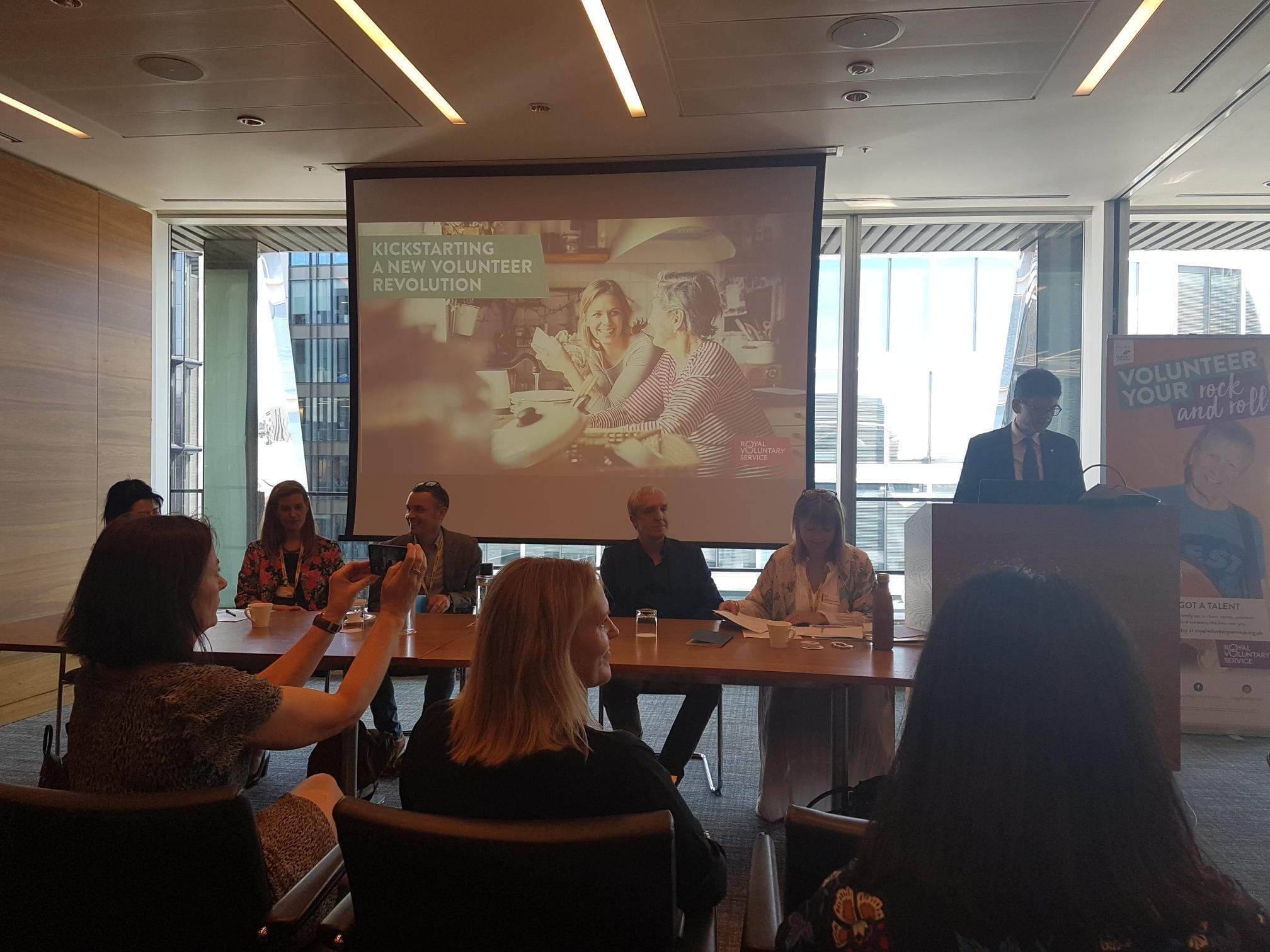
New research from Royal Voluntary Service finds that people from neighbourhoods experiencing disadvantage are less likely to volunteer than people from wealthier neighbourhoods.
Three in ten (34%) of people from the highest socio-economic groups reported never having volunteered, however, the figure was significantly higher (56%) for those from the lowest groups according to a new report published by Royal Voluntary Service. The report, ‘Kickstarting a Volunteering Revolution’, sets out to understand why people decide to volunteer and how to engage those who do not. Information was drawn from a public opinion survey of over 4,000 UK adults and a booster survey of 500 first time volunteers commissioned by Royal Voluntary Service, as well as in-depth interviews and a review of recent literature.
The report highlights that there is a clear link between how likely an individual is to volunteer and the extent to which they experience disadvantage.
At an event hosted by Royal Voluntary Service earlier this week, co-author of the report and panel member, Dr Justin Davis-Smith CBE, explained: “The fact that people from lower socio-economic groups are less likely to volunteer, suggests they face specific barriers.”
“The barriers to volunteering include work pressure and commitments, children and home responsibilities and other demands on their free time.”
Royal Voluntary Service’s Chief Executive, Catherine Johnstone CBE, said: “We want to reach beyond the civic core by enabling more people, especially those from more diverse backgrounds, to volunteer to support the NHS and older people in local communities.”
A Q&A panel, including People’s Health Trust’s Chief Executive, John Hume, were asked: ‘What steps we can take to ensure that volunteering is open and accessible to all?’ and ‘Why is volunteering so essential to society?’
John said: “Volunteers are at the heart of the majority of projects funded by People’s Health Trust. People who live in disadvantaged neighbourhoods are really engaged and full of knowledge. Volunteering is important when it’s as part of a bigger system about shared values, co-operation, reciprocity and civic engagement. We need to ensure that volunteering is more representative of all in society and that there is a two-way exchange between organisations and individuals.”
Royal Voluntary Service volunteer, Tayla Falconer, concluded the session by sharing her experience of volunteering. She said: “I’ve had many enjoyable and interesting opportunities through volunteering over the past six years. It has boosted my confidence and social skills.”
Royal Voluntary Service is currently delivering six Local People programme projects across England and Scotland funded by People’s Health Trust. Local People is a People’s Health Trust funding programme which encourages communities across Great Britain to come together and take the lead in the design and delivery of home-grown ideas. It relies on the wisdom, experiences and skills of local people and supports them to make the changes they want for their community.
In May, Royal Voluntary Service held their first ever Steering Group conference in Newcastle upon Tyne which brought residents together to share their experiences and celebrate their successes. Read more about it here.
To find out about more great ideas funded by the Trust, click here.
References:
